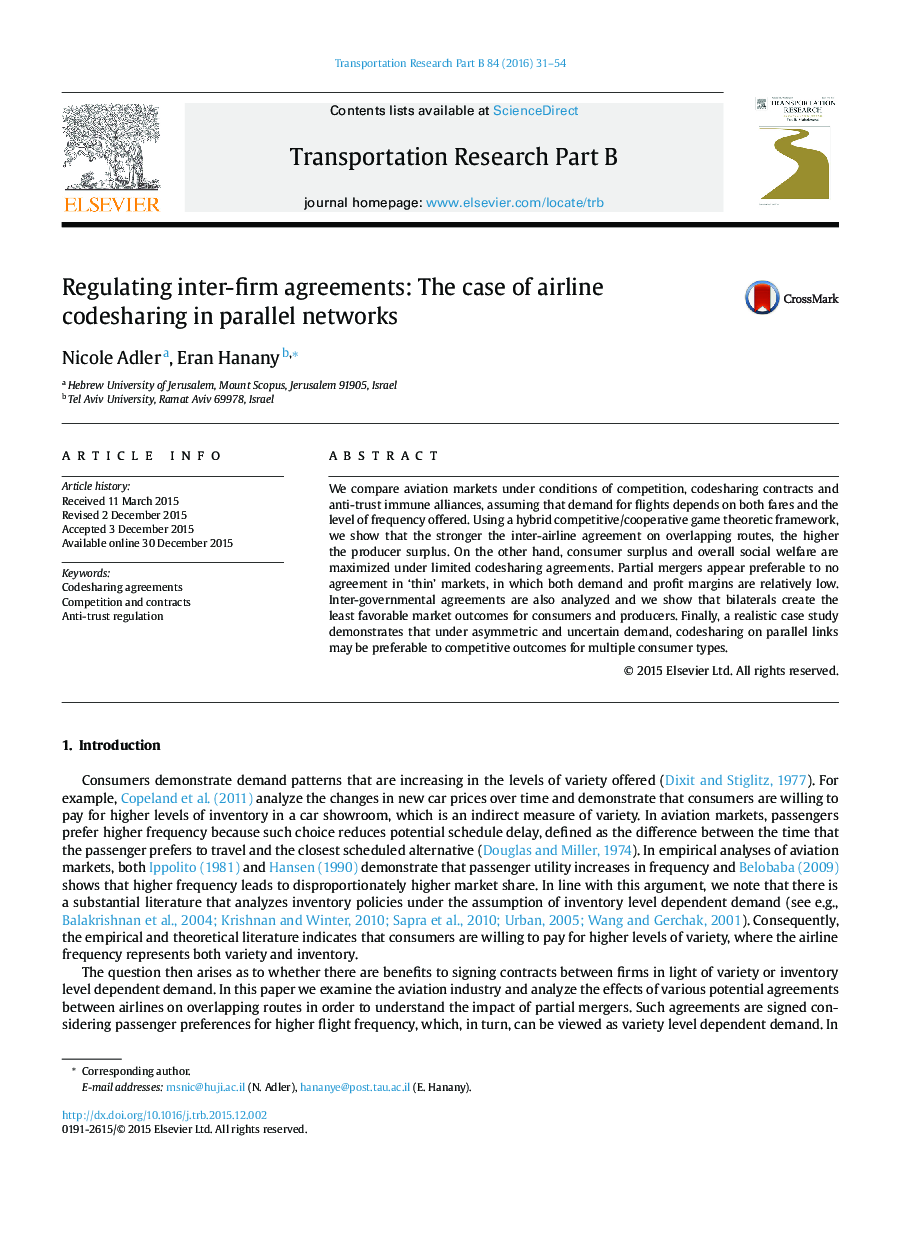| Article ID | Journal | Published Year | Pages | File Type |
|---|---|---|---|---|
| 1131641 | Transportation Research Part B: Methodological | 2016 | 24 Pages |
•Aviation markets with codeshare contracts and inter-government agreements analyzed•Model assumes airline demand is a function of fares and level of frequency offered•Hybrid competitive/cooperative game theoretic framework is developed•Consumers prefer competition and codeshares, producers prefer antitrust immunity•Consumers and producers prefer codeshares to no agreement in parallel thin markets
We compare aviation markets under conditions of competition, codesharing contracts and anti-trust immune alliances, assuming that demand for flights depends on both fares and the level of frequency offered. Using a hybrid competitive/cooperative game theoretic framework, we show that the stronger the inter-airline agreement on overlapping routes, the higher the producer surplus. On the other hand, consumer surplus and overall social welfare are maximized under limited codesharing agreements. Partial mergers appear preferable to no agreement in ‘thin’ markets, in which both demand and profit margins are relatively low. Inter-governmental agreements are also analyzed and we show that bilaterals create the least favorable market outcomes for consumers and producers. Finally, a realistic case study demonstrates that under asymmetric and uncertain demand, codesharing on parallel links may be preferable to competitive outcomes for multiple consumer types.
